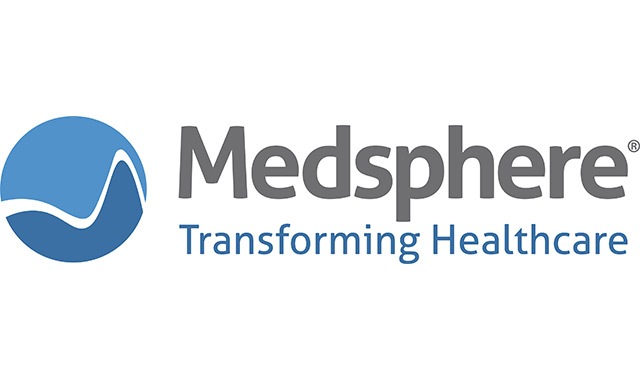By Irv Lichtenwald, president and CEO of Medsphere Systems Corporation, the solution provider for the OpenVista electronic health record.
Looking to dupe urbanite travelers, bartenders and bar owners in rural Western taverns sometimes fasten antelope horns to the head of a large jackrabbit. They then mount the whole thing, hang it over the bar and tell visitors looking for a craft brewed IPA to watch for vicious jackalopes when they’re out and about.
So, are we having a jackalope moment in health IT? Do we believe in something we can’t see?
The suggestion has been made that some vendors are actively engaged in “information blocking”—a basic refusal to exchange patient data with other systems. Either that or they’re charging boatloads of money to do so, which is framed as a form of information blocking in a way, but not exactly.
The anecdotes, claims and counterclaims about information blocking are flying.
A vice president from Athenahealth says some vendors are charging $1 million to build an interface, a half million to maintain it and $2 every time a doctor uses it to send data. An Epic vice president says they don’t ever engage in information blocking activities “if they exist at all.” (Honestly, with recent news about EHR costs at Partners, who wouldn’t look askance at Epic?)
Congress certainly believes information blocking exists. The 21st Century Cures act, recently approved via unanimous vote in the House Energy and Commerce Committee, makes “information blocking” a federal offense and would fine doctors, hospitals and health IT vendors $10,000 for each offense.
Karen DeSalvo, the national coordinator for health information technology, believes it exists. “We have received many complaints of information blocking,” she recently told the New York Times. “We are becoming increasingly concerned about these practices.”
And there’s enough anecdotal evidence to suggest the practice is actually happening, though the causes, frequency and motivations regarding information blocking remain unclear.
“In 2014, ONC received approximately 60 unsolicited reports of potential information blocking,” ONC stated in an April 2015 report to Congress. “In addition, ONC staff reviewed many additional anecdotes and accounts of potential information blocking found in various public records and testimony, industry analyses, trade and public news media, and other sources.”
And this sleuthing revealed that “Most complaints of information blocking are directed at health IT developers.”
“Many of these complaints allege that developers charge fees that make it cost-prohibitive for most customers to send, receive, or export electronic health information stored in EHRs, or to establish interfaces that enable such information to be exchanged with other providers, persons, or entities,” the ONC report to Congress continues. “Some EHR developers allegedly charge a substantial per-transaction fee each time a user sends, receives, or searches for (or ‘queries’) a patient’s electronic health information.”
This is also not a surprise. Businesses exist to externalize costs and increase revenue. The role of government is to act as a watchdog on industry, assuming it usually won’t manage itself. Yes, government can create excessive regulations that get in the way of innovation, but the argument here is for balance and restraint, not wholesale retreat.
And if there is one thing about health IT we can probably all agree on, it is that balance and restraint have not been achieved. We probably can’t even see it from where we’re standing.
“Every technology has an adoption journey,” wrote John Halamka on his personal blog. Among other titles, Halamka is CIO of the CareGroup Health System, CIO and Dean for Technology at Harvard Medical School and a practicing emergency physician. “The classic Gartner hype curve travels from a Technology Trigger to the Peak of Inflated Expectations followed by the Trough of Disillusionment. It often takes years before organizations reach the Slope of Enlightenment and finally achieve a Plateau of Productivity.”
As you may have guessed, health IT is in the Trough.
“It was a five-year project and we’re just at the beginning of where we’re supposed to be. We’re on course. It’s all OK,” Halamka said in an interview with HealthLeaders Media. “It’s not information blocking. It’s not HIT vendors being reluctant or hospitals holding their data hostage. If the definition of information blocking is that the vendors have all hired Chief Information Blocking Officers who spend their nights thinking about ways to restrict information flow, I’ve never seen it. Find me one example.”
In fact, ONC seems to have found quite a few. And they are not, to be clear, using the hiring of a “Chief Information Blocking Officer” as a working definition.
We know that the technology exists to interoperate and share patient records because other industries do this kind of thing in their sleep. We know that the incentives and / or regulations are not there yet to force real, active, collaborative interoperability.
So, it seems we have two choices: Congress can pass regulations to enforce certain industry behavior, which some members are working towards, or we can wait for the market to spawn an upstart that finds a way to succeed without blocking information and / or charging outrageous fees. Or both.
Halamka may be sanguine about the existence of information blocking, but on this we part ways. I’m not convinced that Nessy exists, that Bigfoot wanders the Pacific Northwest, or that rabbits sprout horns. I do believe, however, that corporations will test the limits of federal regulations, putting the onus on Washington, DC, to find balance.
Oh, and if you’re ever in a bar with a jackalope hanging on the wall, don’t order the Rocky Mountain oysters.








































